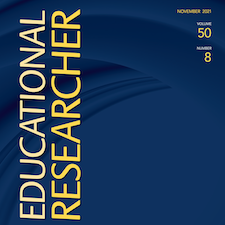 A new study by Dominique Baker, an assistant professor of education policy at Southern Methodist University, and Michael Bastedo, a professor of education and associate dean at the University of Michigan’s School of Education, examines whether admissions lotteries would favorably impact the racial diversity of students at selective colleges and universities.
A new study by Dominique Baker, an assistant professor of education policy at Southern Methodist University, and Michael Bastedo, a professor of education and associate dean at the University of Michigan’s School of Education, examines whether admissions lotteries would favorably impact the racial diversity of students at selective colleges and universities.
Under a lottery system, all applicants who met certain thresholds of high school grade point averages and scores on college entrance examinations would be entered into a pool and randomly selected for admission.
Previous studies in this journal and elsewhere have shown that reliance on standardized test scores would dramatically decrease the number of Black students admitted to our most selective colleges and universities. In a lottery system that included test scores thresholds, the percentage of Black students in the lottery pool would be very low.
But the current research found that using minimum lottery thresholds for GPA and standardized tests, both together and separately, the participation of students of color and low-income students dropped precipitously, in some models to levels below 2 percent of the entering class.
 “Lotteries have been championed as a potential solution for addressing admissions practices at selective colleges that have long favored White and wealthy families, but our simulations find that lotteries could backfire, dramatically reducing the admit rate of students of color or from low-income backgrounds,” said Dr. Baker.
“Lotteries have been championed as a potential solution for addressing admissions practices at selective colleges that have long favored White and wealthy families, but our simulations find that lotteries could backfire, dramatically reducing the admit rate of students of color or from low-income backgrounds,” said Dr. Baker.
Furthermore, significantly lowering the minimum GPA and standardized test score requirements for incoming students at selective institutions would not necessarily enhance the diversity of their classes, according to the study. “The only way we could see to ensure racial and ethnic diversity in who the lottery admits would be to conduct a lottery within each racial and ethnic group,” Dr. Bastedo said. “But this would almost certainly be illegal due to Supreme Court decisions outlawing quotas in college admissions.”
The full study, “What If We Leave It Up to Chance? Admissions Lotteries and Equitable Access at Selective Colleges,” was published on the website of the journal Educational Researcher. It may be accessed here.












